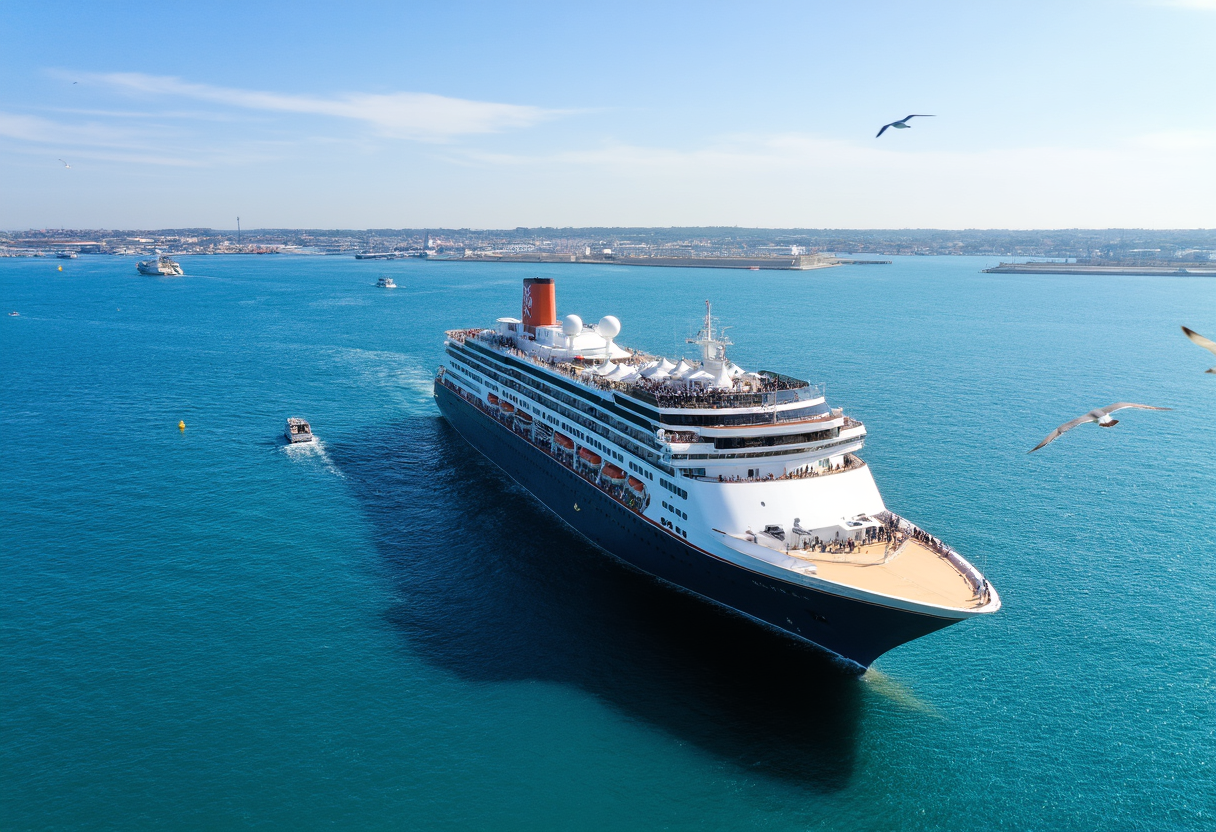The Rise of Cruise Tourism: An Economic Powerhouse
Cruise tourism has emerged as a significant economic driver in the global travel industry. As more travelers seek unique experiences on water, this sector continues to evolve, presenting opportunities for local economies, job creation, and cultural exchange. But what contributes to its rapid growth, and how can it sustain its momentum? This article explores the multifaceted impact of cruise tourism.
Analyzing the Economic Impact of Cruise Tourism
Cruise tourism has undoubtedly transformed local economies around the globe. The continuous influx of cruise passengers into ports stimulates local businesses, generating revenue for shops, restaurants, and attractions. When we consider how cruise tourism enhances job opportunities, it becomes clear that this sector touches many lives—providing employment in both direct and indirect capacities. Moreover, cruise tourism stimulates infrastructure development in host cities, improving public services and transportation. Consequently, regions that embrace cruise tourism often witness a ripple effect, boosting overall economic activity. Without a doubt, the fiscal benefits accompanying cruise tourism make it an appealing option for destinations looking to revitalize their economies.
Understanding the Environmental Concerns of Cruise Tourism
While cruise tourism brings economic benefits, it also raises environmental challenges. The sheer size of modern cruise ships presents potential risks to marine ecosystems. Issues such as waste management and fuel consumption must be addressed to ensure sustainable practices in cruise tourism. Many cruise lines have begun implementing greener technologies—like LNG propulsion and advanced waste treatment systems. Recognizing the urgency of environmental stewardship is essential for the industry’s future. Efforts to balance growth and sustainability will significantly impact the long-term viability of cruise tourism. Undoubtedly, the environmental narrative surrounding cruise tourism can either enhance or detract from its appeal.
The Role of Cultural Exchange in Cruise Tourism
One of the unseen benefits of cruise tourism is its capacity to foster cultural exchange. Passengers get to experience local customs, cuisine, and arts, which enrich their travel experience. At the same time, local communities benefit from increased awareness and interest in their cultural heritage. As travelers disembark from ships, they engage with local populations—creating a dynamic interaction that promotes understanding and appreciation. However, it's crucial for cruise tourism to approach this cultural exchange respectfully to avoid commodification. By prioritizing authentic experiences, both tourists and communities can reap the rewards of this interaction. Therefore, cruise tourism stands not only as a leisure activity but also a bridge between diverse cultures.
Navigating Trends in Cruise Tourism
As cruise tourism expands, staying attuned to prevailing trends is vital for stakeholders. The rise of experiential travel has compelled cruise lines to innovate their offerings. Modern travelers are seeking immersive experiences—from culinary workshops to eco-adventures. This shift encourages cruise companies to collaborate with local suppliers and artisans, enhancing the authenticity of the journey. Furthermore, destination personalization has become a priority; cruisers can now tailor their voyages to suit specific interests and experiences desired. Consequently, these trends are redefining cruise tourism, making it more appealing to a broader demographic. In essence, adapting to market preferences will be essential for sustained progress within the industry.
The Future Outlook of Cruise Tourism
Looking ahead, the trajectory for cruise tourism appears promising, yet complex. Given the challenges posed by the pandemic, cruise lines must rethink their strategies and focus on health protocols. Moreover, there’s a growing emphasis on sustainable practices in this industry. Expectations for environmentally conscious operations will dictate future investments and innovations. As new generations of travelers emerge, their preferences will shape cruise tourism significantly. The industry's responsiveness to evolving consumer demands will ultimately determine its success. Therefore, recognizing these dynamics is crucial for stakeholders invested in the future of cruise tourism.
Conclusion: Fostering Sustainable Growth in Cruise Tourism
Cruise tourism, with its blend of economic potential and cultural exchange, requires a balanced approach. While it powers local economies, environmental concerns must not be overlooked. Stakeholders should prioritize sustainability and genuine cultural interactions to create an enduring legacy. Industry resilience hinges on adaptability to new trends and shifting passenger preferences. Thus, as stakeholders navigate this intricate landscape, fostering responsible growth in cruise tourism will be essential for a brighter future. The interplay of economic gains and cultural enrichment makes cruise tourism a multifaceted enigma worth exploring continuously.
